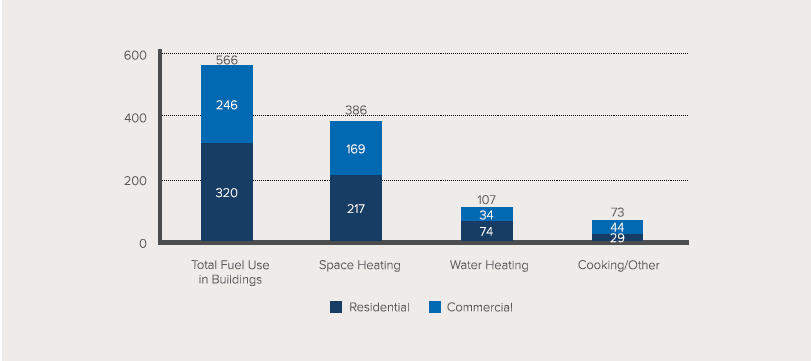I’ll be a guest on KPCC radio’s AirTalk program today at 10:20am, discussing the decision by the Los Angeles Department of Water and Power, at the urging of Mayor Garcetti, to phase out natural gas plants along the coast rather than rebuild them.
The plants will be replaced by renewable energy sources and energy storage, among other clean resources. Some business groups are concerned about the economic impacts on ratepayers, including the other guest, Stuart Waldman, president of the Valley Industry and Commerce Association.
It should be a lively discussion, so I hope you can tune in and ask questions!
 Most buildings today use natural gas in some fashion, typically for three purposes:
Most buildings today use natural gas in some fashion, typically for three purposes:
- Space heating
- Water heating
- Cooking ranges
Yet if we could find electric substitutes for these uses, we could save a significant amount of money and pollution. With an estimated 70 million American homes and businesses burning natural gas, oil, or propane just to heat space and water, the result is 560 million tons of carbon dioxide emitted each year, or one-tenth of total US emissions.
In the Rocky Mountain Institute’s new report, The Economics of Electrifying Buildings, authors Sherri Billimoria, Leia Guccione, Mike Henchen, and Leah Louis-Prescott examine various scenarios to analyze the economics and carbon impacts of electrifying residential space and water heating, both with and without demand flexibility. As they summarize in an accompanying blog post:
In many scenarios, notably for most new home construction, we find electrification of space and water heating and air conditioning reduces the homeowner’s costs over the lifetime of the appliances when compared with performing the same functions with fossil fuels. Costs are also reduced for customers in several retrofit scenarios: for customers switching away from propane or heating oil, for gas customers who would otherwise need to replace both a furnace and air conditioner simultaneously, and for customers who bundle rooftop solar with electrification. New homes and homes currently lacking natural gas service also avoid the cost of gas mains, services, and meters not needed in all-electric neighborhoods.
It’s going to take all sorts of electrification strategies to decarbonize our economy, and removing natural gas from buildings represents one of the most promising, for both the economic and environmental reasons cited in this report.


